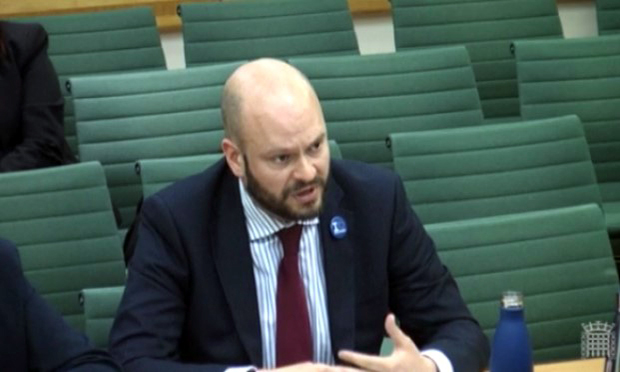Town Hall will be ‘unable to meet needs’ of residents without further funding, Mayor warns

Hackney Mayor Philip Glanville has warned that the council will “not be able to continue to meet the needs of our residents” without further funding from government.
Glanville revealed to the Local Government Chronicle in April that he could not rule out issuing a Section 114 notice in a year’s time, a move of last resort in when a council’s finances are deemed unsustainable.
Under such a notice, all new spending apart from on the vulnerable and statutory services would cease.
In a joint letter with Deputy Mayor Rebecca Rennison to Prime Minister Boris Johnson, the borough leader repeated warnings that a continuing funding gap of £19m threatens the Town Hall’s long-term financial sustainability.
Mayor Glanville said: “On Thursday, like you we will be clapping our carers and key workers, it cannot be right that once this crisis is over that their jobs and the services they provide will be at risk.
“I ask that your government agrees to meet the financial needs of local councils and their key workers, and honour the pledge your Secretary of State made to us at the beginning of this crisis, ‘Spend what you need’ and that the government would support us.
“As I am sure you are aware, alongside the NHS, councils like Hackney are on the frontline of responding to this crisis. We are leading from the front, working cooperatively with our local communities, setting up volunteer hubs and coordinating with local charities to support our most vulnerable and supply food parcels and other essential supplies beyond the government’s shielding lists.”
The Town Hall was allocated around £17.5m from the £3.2bn so far given to councils to respond to the impact of the virus, leaving a budget gap of £19m for the first three months of the financial year alone.
The council is expecting a reduction in income of £37.2 million on the year through losses in waste, parking, rent and council tax.
Secretary of State for Local Government Robert Jenrick, in evidence to a parliamentary committee on local government, had characterised councils’ estimates of their own lost income as “highly speculative”, comments Glanville condemned in the letter as “unwelcome and inaccurate”.
Glanville added: “[Jenrick’s] comments last week suggesting that the government had been ‘very clear’ about the ‘specific tasks it has asked of councils’risks being disingenuous given only a few weeks before we were being told to spend and do whatever it takes to support our borough and the most vulnerable.
“Indeed that was the implicit and explicit tone of our engagement with the government, linked to the promise of funding to support these humanitarian endeavours.
“We have worked tirelessly to implement the government’s directives regarding Covid-19, including the large number from the Ministry of Housing, Communities and Local Government.
“I am sure that the Secretary of State is aware of this effort and it is my hope that he in turn works to champion the needs of those local authorities working so hard to deliver the government’s programme of support at this time.”
The council’s discretionary crisis support scheme, from which residents can apply for urgent financial support, has seen an investment of half a million pounds, with another £120,000 invested into discretionary housing payments for rent support for residents.
Voluntary and charity organisations renting council buildings have also seen a three-month rent holiday, with rents deferred for a similar period for the Town Hall’s commercial tenants.
Fees and charges for any street market traders unable to trade have also been suspended, with commercial waste payments for closed businesses also halted.
A further £12m in funding for adult and children’s social care, homelessness and education was also agreed by councillors last month, with the Town Hall’s reserves of £15m expected to be spent during the crisis.
Glanville concluded: “To continue to support these services and key workers, so they can keep looking after us, more money than your government has so far announced is desperately needed.
“The financial impact of this crisis on our income will be profound. Over the course of the coming year, the combination of additional costs and lost income that we would normally receive from the services we deliver, leaves a shortfall of £72 million.
“We appreciate the theoretical need to share the burden, but it must be based on the needs of our communities, a long term plan to properly fund local government through this crisis and beyond and not a continuation of austerity.
“As you can see from the figures above, even taking our full reserves and the full government contribution to date, this takes us less than halfway towards meeting the forecast shortfall.”
The MHCLG was approached for comment, but had not responded by time of going to press.
